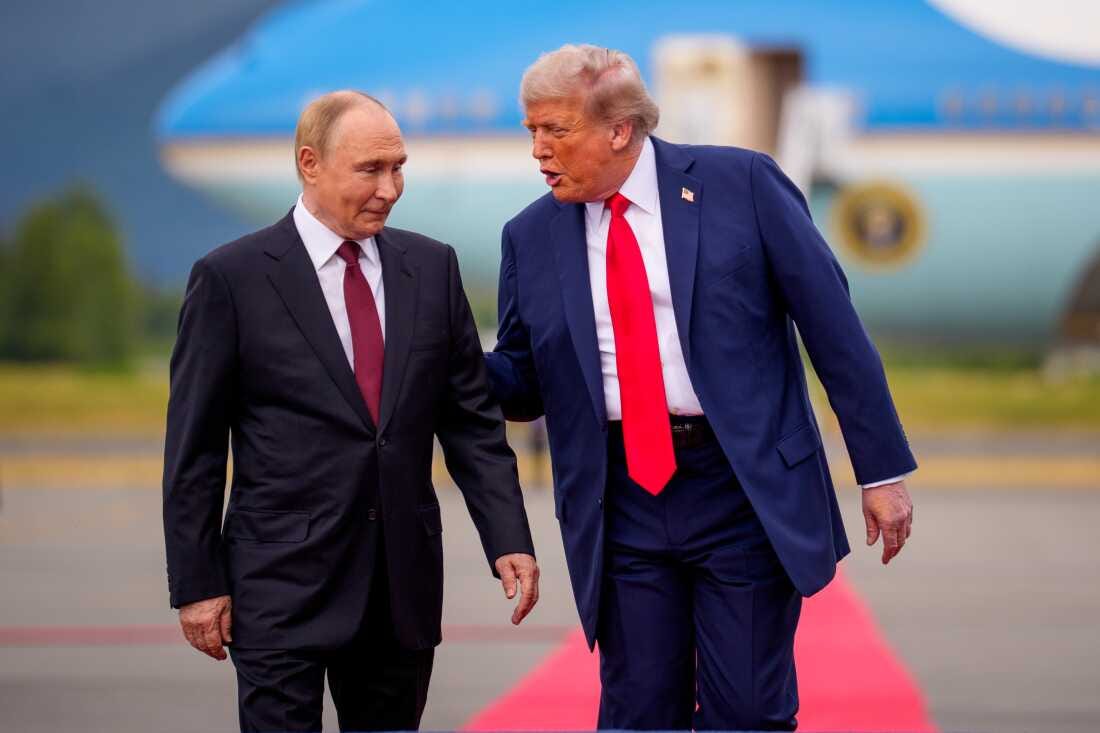The Rhetoric of Annihilation
How Leaders’ Words Ignite a Global Tinderbox?
In the escalating geopolitical drama, the verbal threats exchanged by world leaders are not just empty words; they are potent instruments capable of igniting real-world conflagrations. When President Putin sharply dismisses U.S. missile threats, it underscores a dangerous game of ‘cultural brinkmanship’ where language itself becomes a weapon.
The Big Question: What Price for a War of Words?
When leaders trade escalating verbal threats, as we recently witnessed with former U.S. President Donald Trump’s warning of long-range missile deployment to Ukraine and Russian President Vladimir Putin’s defiant retort, it raises a fundamental question: What are the true costs of this ‘cultural brinkmanship’? We often dismiss such exchanges as mere political theater, yet history teaches us that words possess a terrifying power, capable of shaping reality, eroding trust, and pushing nations towards the brink of unthinkable conflict. I believe understanding this dynamic is crucial, not just for policymakers, but for every citizen navigating the fraught landscape of modern geopolitics.
This isn’t an abstract academic exercise; it’s an urgent inquiry into the very fabric of our shared global security. We must ask ourselves how these calculated provocations and dismissals, often framed as displays of strength, simultaneously chip away at the fragile edifice of international diplomacy and mutual understanding. Are these verbal volleys simply expressions of intent, or are they performative acts that compel nations down predetermined paths, regardless of the consequences for ordinary people?
The Escalation Narrative: A Study in Deterrence and Defiance
The specific incident in question – Trump’s airborne threat of deploying long-range missiles to Ukraine if Putin’s invasion continued, met by Putin’s blunt assertion that ‘the U.S. can change nothing’ – provides a stark case study. Ukrainian President Zelenskyy’s request for these missiles adds another layer, creating a complex web of demands, threats, and dismissals. The Kremlin’s immediate labeling of the situation as ‘extremely dangerous,’ coupled with Belarusian leader Lukashenko’s plea for calm, underscores the immediate, visceral tension these words generate.
From an academic perspective, this interaction can be analyzed through the lens of deterrence theory, but with a critical caveat. Traditional deterrence relies on credible threats of retaliation to prevent action. Here, however, we see a more nuanced ‘cultural brinkmanship,’ where the rhetoric itself becomes a weapon, not just a signal. It’s about shaping narratives, projecting an image of unyielding resolve, and exploiting perceived weaknesses in the adversary’s political will. This performative aspect is critical; leaders are not just speaking to each other, but to domestic audiences, allies, and the global public, each seeking to reinforce their authority and moral standing.
Why the Words of Leaders Carry Existential Stakes
The implications of this escalating verbal warfare are profound and touch upon existential stakes. Firstly, such rhetoric heightens U.S.-Russia tensions to perilous levels, risking miscalculation or unintended escalation. Every sharp word exchanged narrows the window for genuine diplomatic engagement, replacing it with a zero-sum game of dominance. Secondly, and perhaps more tragically, it normalizes a language of conflict and aggression, making the prospect of actual war seem less distant, less impossible. As Hannah Arendt wisely observed:
The most radical and the most successful revolutionaries are those who know how to choose their words, for it is in the choice of words that the new world, or rather, the new human condition, is anticipated.
– Hannah Arendt
When leaders choose words of defiance and threat, they are not merely describing a situation; they are actively constructing a reality—one that makes peace seem less achievable and conflict more inevitable. This normalization of danger is a silent killer of hope, eroding the collective belief in peaceful resolution and empowering the voices of aggression. This isn’t just about political grandstanding; it’s about the erosion of the shared human project of peace.
The human cost, particularly for Ukrainian and Russian citizens, is often forgotten amidst the grand pronouncements. This ‘third-way perspective’ demands we critique both sides without bias, acknowledging that while leaders play their high-stakes game, it is ordinary people who bear the brunt of their strategic language. The danger here is that words, detached from their consequences, become instruments of dehumanization, making it easier to justify further suffering.
How to Navigate the Rhetorical Fog
As citizens, how do we navigate this dense rhetorical fog? First, we must cultivate a deep skepticism towards any rhetoric that simplifies complex geopolitical issues into binary good-versus-evil narratives. Such framing, while emotionally compelling, often obscures the nuanced realities and limits the scope for creative solutions. We must recognize the psychological forces at play: the appeal to nationalism, the invocation of existential threats, and the demonization of the ‘other.’ Václav Havel’s insights here are invaluable:
If the main pillar of the system is living a lie, then it is not surprising that the fundamental threat to it is living the truth.
– Václav Havel
When leaders engage in rhetorical brinkmanship, they often compel their populations to ‘live a lie’ – to accept narratives that serve political power rather than objective truth. Our role is to challenge these lies, to demand transparency, and to insist on a language that prioritizes de-escalation and human dignity.
Secondly, we must actively seek out diverse sources of information and challenge our own biases. The goal is not to eliminate personal convictions, but to fortify them with a robust understanding of differing perspectives. By doing so, we can resist the emotional pull of alarmist rhetoric and foster an environment where reason and empathy can still prevail over the destructive impulses of confrontation. Ultimately, applying this knowledge means advocating for leaders who speak with wisdom and restraint, understanding that true strength lies not in the loudest threat, but in the most considered and human response.



